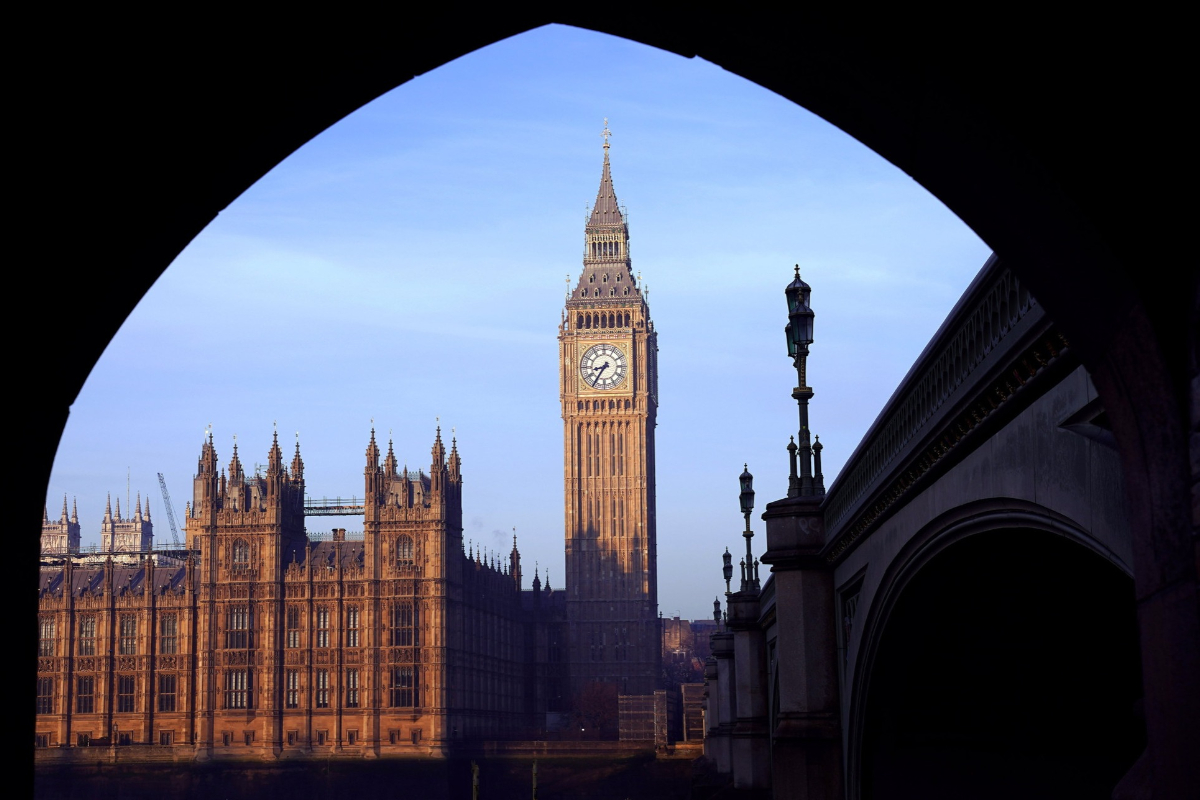- UK researcher arrested on charges of spying for China.
- Researcher denies wrongdoing, and says he is innocent.
- China rejects spying allegations, calls them ‘baseless’.
A researcher working for the UK Parliament, who was arrested on charges of espionage for China under the anti-espionage laws, has vehemently denied any wrongdoing.
In a statement released through his legal representatives, the individual expressed his complete innocence and stated that he felt compelled to respond to the allegations circulating in the media.
This researcher, along with another individual, was apprehended in March under the Official Secrets Act.
It is understood that the arrested researcher had access to several Conservative Members of Parliament (MPs).
China has firmly rejected these spying allegations, with Mao Ning, a spokesperson for the foreign ministry, denouncing them as baseless and malicious slander.
Deputy Prime Minister Oliver Dowden is scheduled to address Parliament later today, while Prime Minister Rishi Sunak will face questioning from MPs regarding the recent G20 summit over the weekend.
Earlier, Commons Speaker Sir Lindsay Hoyle cautioned Members of Parliament against revealing the identity of the arrested individual, who is not named by the BBC, by invoking parliamentary privilege.
“However, given what has been reported, it is vital that it is known that I am completely innocent.
“I have spent my career to date trying to educate others about the challenges and threats presented by the Chinese Communist Party.
“To do what has been claimed against me in extravagant news reporting would be against everything I stand for.”
On Saturday, the Metropolitan Police officially verified that in March, they had arrested two individuals under the Official Secrets Act.
One of these individuals, aged in his 30s, was apprehended in Oxfordshire, while the other, in his 20s, was taken into custody in Edinburgh.
According to sources with knowledge of the situation, it has been revealed that one of the arrested individuals was a parliamentary researcher specializing in international affairs matters.
Both of these individuals have been granted bail, and the investigation into their cases, which falls under the purview of the Met’s Counter Terrorism Command responsible for espionage-related offenses, is ongoing.
China stance row
The news of these arrests, which was initially disclosed by the Sunday Times, coincided with Prime Minister Rishi Sunak’s planned meeting with Chinese Premier Li Qiang during the G20 summit in India on Sunday.
A spokesperson from 10 Downing Street stated that during the meeting, Prime Minister Sunak took the opportunity to express “his serious concerns regarding Chinese interference in the UK’s parliamentary democracy.”
According to the newspaper’s report, the arrested researcher had access to individuals such as Security Minister Tom Tugendhat and Foreign Affairs Committee chairwoman Alicia Kearns, among others.
It is worth noting that Mr. Tugendhat had limited contact with the individual and had no official dealings with him as a minister.
The arrest of the researcher has reignited a debate within Conservative MPs about whether the UK should adopt a more stringent stance toward China.
Prominent Conservative backbenchers, including former leader Sir Iain Duncan Smith and MP Tim Loughton, have called for the government to officially designate China as a threat to the UK, a move that has thus far been resisted by government ministers.
Labor leader Sir Keir Starmer raised questions about whether Mr. Sunak had informed China about the arrest when it occurred in March or more recently, suggesting that Mr. Sunak had a significant issue to address.
During a visit on Monday, Sir Keir declined to specify exactly when he became aware of the arrest, stating that he had only been informed “very recently.”
Western visits
Earlier, Business Secretary Kemi Badenoch emphasized the importance of cautious language use, stating that labeling China as a threat could lead to an escalation of tensions.
She noted that the UK’s current position, describing China as an “epoch-defining challenge,” was consistent with the stance adopted by British allies.
In the coming autumn, Prime Minister Anthony Albanese is expected to become the first Australian leader to visit China since 2016, with a planned trip to Beijing.
Notably, last month, James Cleverly became the first UK foreign secretary to visit China in five years, following a visit by his American counterpart, US Secretary of State Antony Blinken, to Beijing in June.
China holds the position of the UK’s fourth-largest trading partner, and British ministers frequently emphasize the importance of collaboration with China on significant global issues, such as addressing climate change.
However, bilateral relations have experienced strains in recent years due to various concerns, including threats to civil liberties in Hong Kong, a former British colony, and China’s support for Russia during the conflict in Ukraine.





















